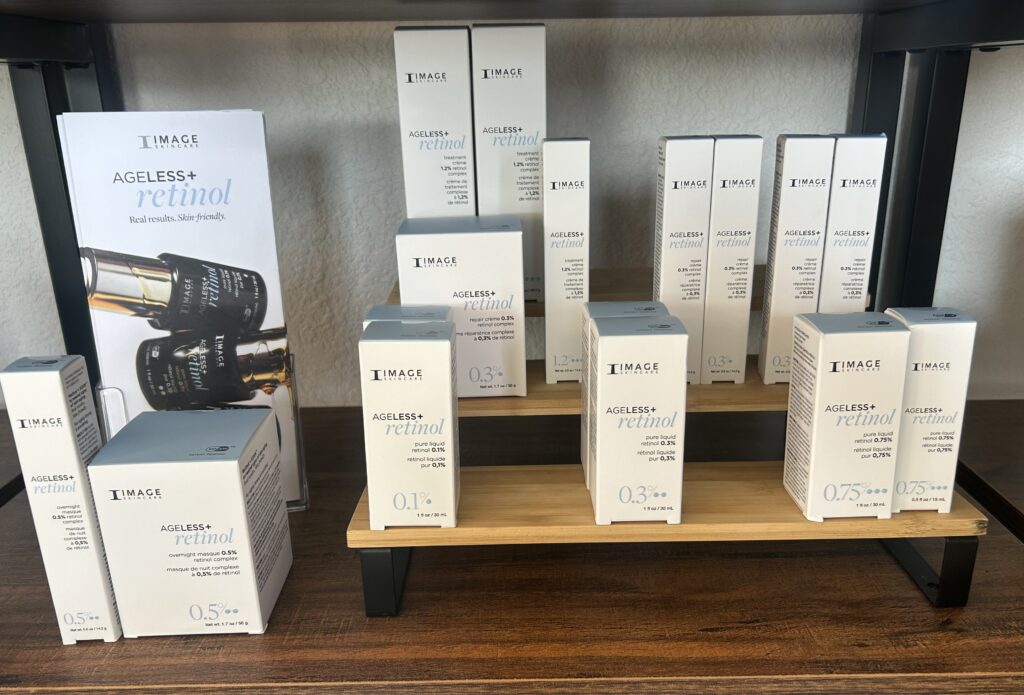What does retinol do for the face?

The History of Retinol for the Face
Retinol was first identified in 1909. Later, the connection between retinol and skin health began to emerge. In 1971, the FDA approved tretinoin (Retin-A), a topical form of retinoic acid, for acne treatment. Dermatologists noticed that tretinoin not only cleared acne but also reduced wrinkles and improved skin texture. This discovery spurred further research into retinoids, leading to the development of various formulations and strengths.
Retinoids vs. Retinols
Retinoids are a class of compounds derived from vitamin A. They include prescription-strength options like tretinoin (Retin-A) and adapalene (Differin). These prescription retinoids are already in the active form.
Retinol is a specific type of retinoid, that needs to be converted into retinoic acid by the skin to be effective.
Prescription retinoids are generally stronger and more effective but may also cause more side effects. Over-the-counter retinols come in lower concentrations and are generally gentler on the skin.
How Retinoids Affect the Skin Barrier
Increased cell turnover: Retinoids accelerate skin cell turnover, which can disrupt the skin’s natural protective layer, particularly during the initial adjustment period.
Lipid and protein disruption: Retinoids can affect the lipids and proteins that maintain the skin barrier’s integrity, leading to increased transepidermal water loss (TEWL) and dryness.
Inflammation: Retinoid use can trigger the release of inflammatory proteins, further contributing to barrier disruption and irritation.
Sun sensitivity: Retinoids can make the skin more sensitive to UV radiation, increasing the risk of sunburn and further skin damage.
Why you should use Retinol
Anti-Aging: Both retinols and retinoids can help reduce the appearance of fine lines and wrinkles by stimulating collagen production and increasing cell turnover.
Acne Treatment: They can help unclog pores, reduce inflammation, and prevent new acne breakouts.
Hyperpigmentation: Retinoids can also help fade dark spots and even out skin tone.
Retinols are generally more gentle on the skin barrier and can produce less of the negative side effects. Retinol should be used nightly to reap the most benefits. Daily sun protection is a must to prevent unwanted pigmentation from retinol use. Choose a product that also hydrates and protects the skin from negative side effects. Our favorite retinol products are the Ageless+ Retinols from Image Skin Care. Shop Image products here: https://www.vagaro.com/sweetbewellnessandskin/products or schedule a FREE consultation with us to find out which retinol product is right for you. http://www.sweetbewellness.com/services
